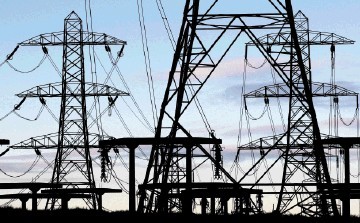
Subsidies to reduce the risk of blackouts must focus on innovative schemes for energy storage and cutting demand rather than “dirty diesel”, MPs have urged.
Through the Government’s capacity market, power providers – including the owners of “diesel farms” which produce energy from generators powered by the fossil fuel – are paid to ensure electricity generation is available to the grid to meet demand.
But the Energy and Climate Change (ECC) Committee said the system favoured polluting diesel generators over smart technology which stores power and reduces demand, and which could deliver billions of pounds of savings for consumers.
Energy storage qualifies only for four-year contracts and schemes which pay large users of electricity to reduce consumption at times of peak demand only get one year contracts, compared to 15 years for new fossil fuel generation.
The Government should redesign the capacity market to encourage energy storage, which ranges from lithium batteries to pumping water uphill and releasing it through turbines when power is needed, the committee said.
Ministers should also consider a subsidy system for storage to speed up deployment, given its importance for storing and using power from renewables to make the most of the clean technology.
They should commit to making the UK a world leader in storage and set a procurement target for 2020, the committee said.
There should also be a clear signal that “demand side response” systems, which encourage electricity users to reduce consumption at certain times, will be bought as a strongly preferred alternative to diesel generation plants.
This could involve ordering by merit the way power needs should be met in the UK when margins are tight, with demand side response high on the list.
It said costly bonds demand side response providers have to put up in the capacity market should be removed.
The committee’s chairman, Angus MacNeil, said: “The Government must get a move on and encourage the energy market to embrace smart technological solutions like energy storage and demand side response.
“There is an incredible opportunity for the UK to become a world leader in these disruptive technologies.
“Yet our current energy security subsidies favour dirty diesel generation over smart new clean tech solutions.”
He said: “Getting demand side response right will empower consumers, reduce bills, ease pressure on the grid and lower carbon dioxide emissions.
“Energy storage is a vital keystone in building a clean electricity system. It will mean we won’t have to wait for the sun to shine or the wind to blow to get our energy from renewables.
“We can generate electricity, store it and turn it on when it’s needed. If current regulatory barriers to storage were removed, some £7 billion per annum of savings to consumers could be achieved.”
With the merger of the Department of Energy and Climate Change (Decc) with the Business Department, the report is the last from the ECC Committee, whose work will be taken over by the Business, Energy and Industrial Strategy Committee.
Recommended for you
